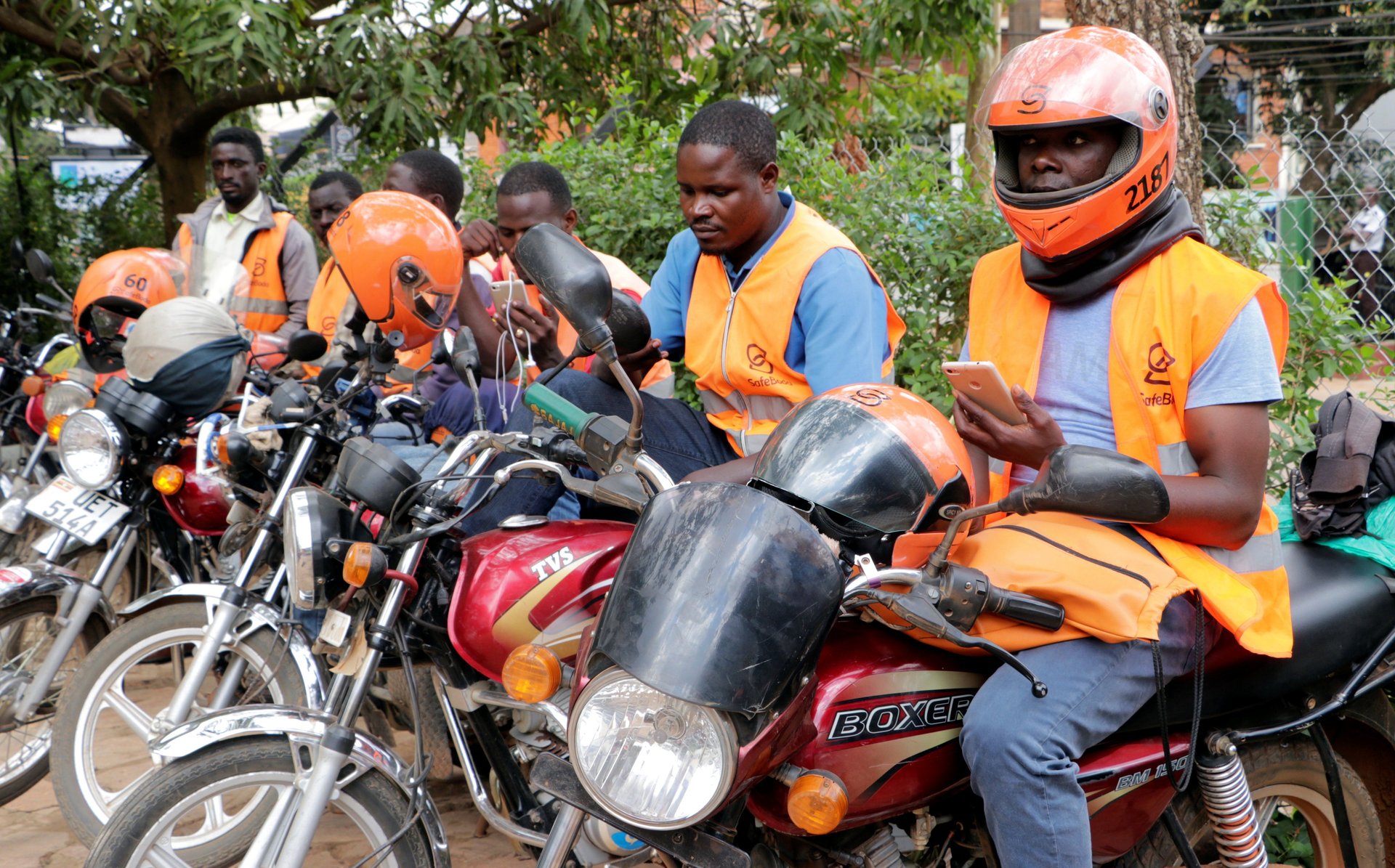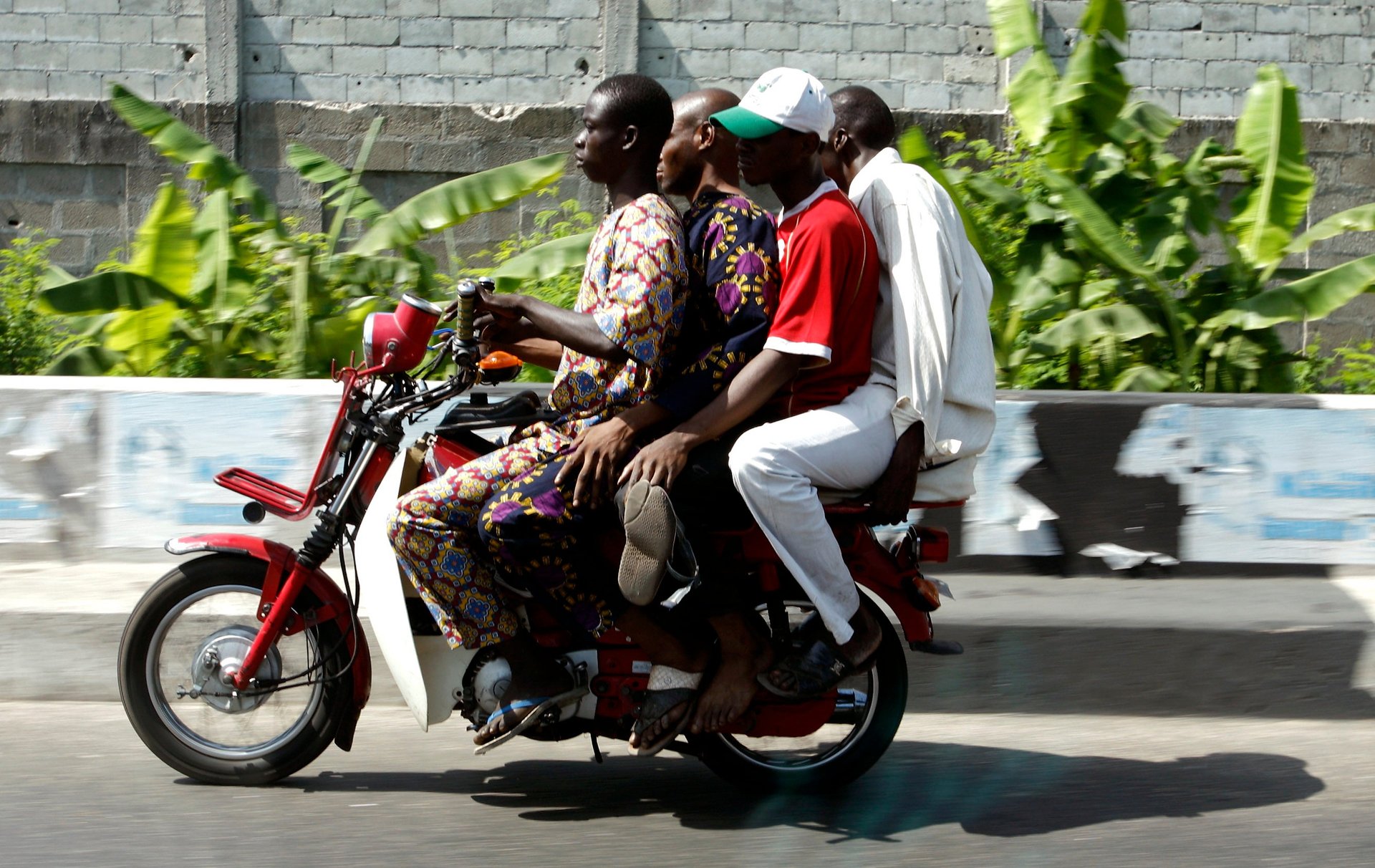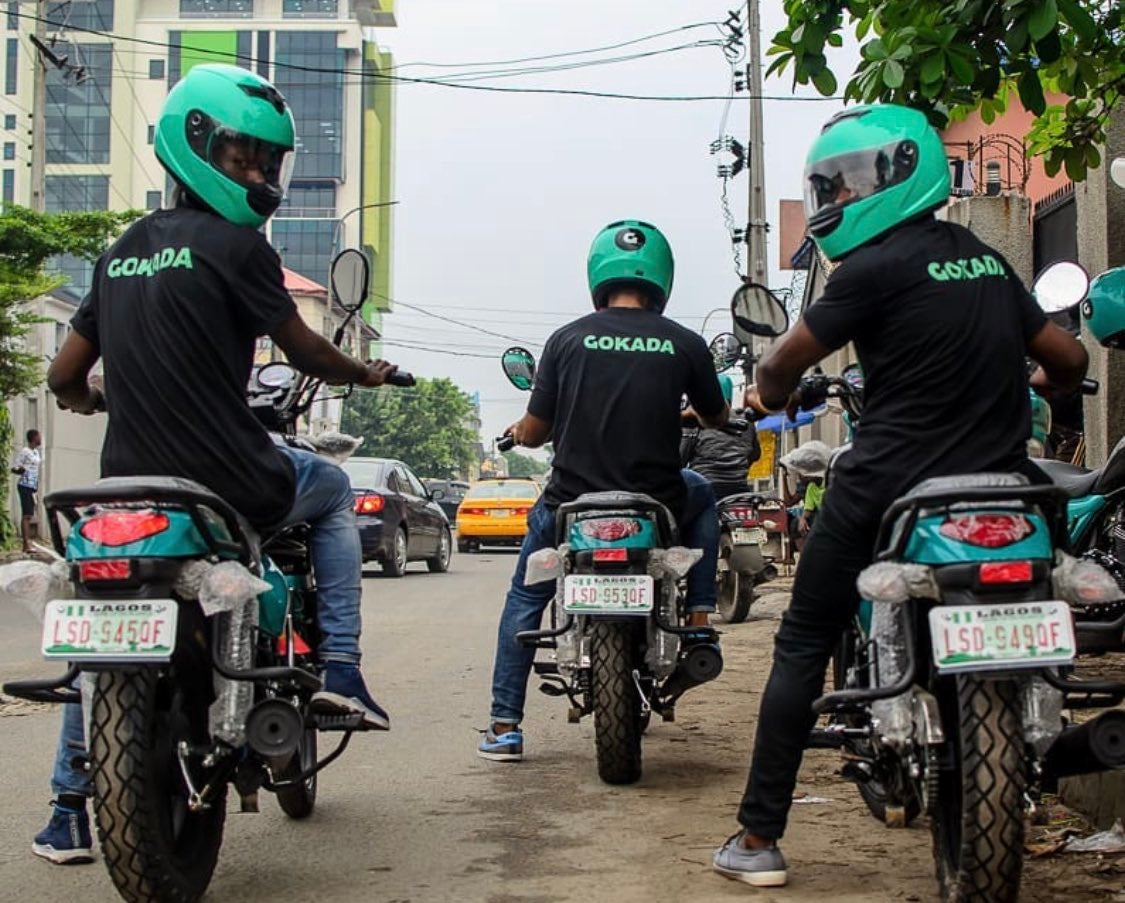Motorcycle-hailing startups are battling each other—and the law—to win in Africa’s largest city
When a customer scrolls through the options on a ride-hailing app in Lagos, Africa’s largest city, cars are no longer the only things that show up.


When a customer scrolls through the options on a ride-hailing app in Lagos, Africa’s largest city, cars are no longer the only things that show up.
Over the past 18 months, motorcycle-hailing startups have become players in the city’s tech ecosystem, all competing for traction and market share in a city beset with some of the continent’s worst transportation challenges. By itself, the idea of an on-demand, flexible transport service to get around Lagos’ hours-long traffic jams and congestion is an appealing proposition for millions of Lagosians. It’s also cheaper compared with established car-hailing services like Uber and Taxify.
To be clear, commercial transport motorcycles, known locally as okadas have long existed in Lagos, like in many other African cities where they have names like boda boda or moto. However, while okadas are known for being reckless at the expense of their passengers’ well-being, the relatively new motorcycle-hailing companies are trying to position their new services as the safer option. They emphasize features like carrying one passenger at a time, insist on passengers wearing helmets and training their motorcyclists or riders to comply with traffic laws.
It’s a value proposition that’s proved a strong enough pull for customers so far. Max.ng, a motorcycle-hailing startup founded by two alumni of the Massachusetts Institute of Technology, says it has over 1,000 motorcyclists (also referred to as riders) signed up and has completed over 850,000 trips since launch while Gokada, its main rival, also boasts over 1,000 riders signed on to its service.
The sub-sector is also winning investor interest as well. Last week, Gokada raised $5.3 million in a Series A round led by Rise Capital. Opera, the internet company best known for its Opera Mini browser, has launched Oride in Lagos this month while SafeBoda, the East Africa player, has announced an expansion to Nigeria.
Motorcycle-hailing startups launched in Lagos in the last year
The activity mirrors the competition for market share in East Africa with uberBODA, Uber’s motorcycle service, and SafeBoda operating in Kenya and Uganda. Bolt (formerly Taxify), Uber’s largest African rival, also has a Bolt Boda service in Kenya. These start-ups are all betting on market adoption and winning a big enough of slice of the market for two-wheel transport which is forecast to cross $9 billion by 2021 with Nigeria being among the three biggest markets in Africa.
Models and logistics
Bike-hailing startups are pretty much based on the same gig economy model: users download an app, sign up, request rides and branded motorcycles show up on-demand. But as an added feature, users can also hail branded bikes on the street as you currently do with standard okadas. Then the passenger pairs up via the app to start a journey.
Like car-hailing services like Uber and Taxify, bike-hailing services have to compete for both riders and their passengers. But rather than tussle for the same set of drivers by offering cheaper commission rates, Gokada and Max.ng secure their separate driver pools through asset financing contracts that see riders acquire the branded motorcylces and remit a fixed amount daily ($8 in the case of Gokada) until the bike is paid off.
It’s an arrangement that works for riders as they avoid the large upfront expense of buying expensive bikes. Gokada has reportedly struck a partnership with TVS Motors, an Indian manufacturer, to create custom versions of its TVS Apache motorcycles. The company’s range of Apache motorcycles cost up to $1,500. SafeBoda’s model in Uganda and Kenya is different as it targets riders who already own motorcycles to get signed up to its platform after passing bike inspections. It’s also more attractive from an entrepreneurial perspective as the motorcyclists have a much better chance of owning their own motorcycle eventually unlike the car model. In Lagos, like in many other African cities, Uber or Bolt cars are usually owned by a third party who rents cars out or hires drivers.
To woo passengers, beyond offering quicker transport, bike-hailing startups also play up their safety records and standards with riders and passengers required to wear helmets and obey traffic laws—a major difference from local independent okadas which are known for their tendency to break laws and involvement in accidents.
A motorcycle’s advantage of being more flexible and faster than cars in traffic is also being applied beyond passenger transport to delivery and logistics. As businesses leverage the internet to grow sales and expand their reach, the logistics of delivery have become a crucial element of commerce. As a result, motorcycle courier and delivery services have become ubiquitous across Lagos.
Max.ng, which was initially founded as a delivery service in 2015, already plays in that space while Safeboda offers options for item and food delivery beyond passenger rides in Uganda and Kenya and could do same in Nigeria.
“Delivery is everything, to be honest,” says Adeshina Peter, marketing executive at a clothing startup which outsources its delivery to a motorcycle courier service. “We don’t have to worry about the remoteness of the delivery location or state of traffic.”

Adeshina says his business has not yet begun patronizing bike-hailing startups for delivery but long-term, as the startups grow brand recognition and credibility, they’ll likely target larger shares of the product delivery market as a revenue stream just as Uber has done in American and European markets as well as in South Africa with UberEATS.
The long arm of law
But the potential of motorcycle-hailing startups remains subject to the uncertain field of government regulation, especially in the Nigerian environment where policies can be destabilizing and sudden as Uber itself found out in 2016.
While car ride-hailing companies like Uber tend to operate in a grey area when it comes to the law, in Lagos, motorcycles have next to no relationship with regulators. A 2012 ban in Lagos means that there are nearly 500 highways and bridges that commercial motorcycles with less than 200 cylinder capacity (cc) cannot ply—the most common okada brands on Lagos streets are 150 cc and less. Gokada and Max.ng have attempted to maneuver that ban by providing their riders with motorcycles above that threshold but it has not proven enough to ensure a smooth ride: both companies had their bikes impounded by the state government in March for violating state road laws.

Lagos state, which is the commercial nerve center of Nigeria, is probably the most regulatory conscious state in the country. Both startups and long-established businesses easily run afoul of state agencies when it comes to paying taxes, levies and meeting regulatory requirements. But it appears Lagos is still deciding its final strategy when it comes to motorcycle-hailing companies.
“The state government doesn’t want to talk to anyone [about regulation],” says Babajide Duroshola, Nigeria country head for SafeBoda. However, as bike-hailing start-ups become more prominent, Duroshola expects that to change and advocates a “consortium” of the startups “approach the government to discuss regulation.” Perhaps in anticipation, Gokada has just hired a former Lagos State Employment Trust Fund staffer as its first director of government and regulatory affairs.
There are several features in Lagos that also suggest the government’s bans are unlikely to work. Despite being the smallest state by land mass in Nigeria, Lagos is also home to over 20 million people and the state-owned bus transit service is unable to cater to all of the city’s public transport needs. In addition, with hundreds of roads being difficult to access by car and several neighborhood clusters being poorly planned, motorcycles have become a necessity of sorts.
“The traffic situation in Lagos doesn’t seem like it will ever get better because the infrastructure has not been designed for expansion even though population is expanding,” Duroshola says. With motorcycles already embedded in the state’s transport system based on people’s needs, the next step, Duroshola says, “is to bring structure to an already unstructured industry.”
Sign up to the Quartz Africa Weekly Brief here for news and analysis on African business, tech and innovation in your inbox